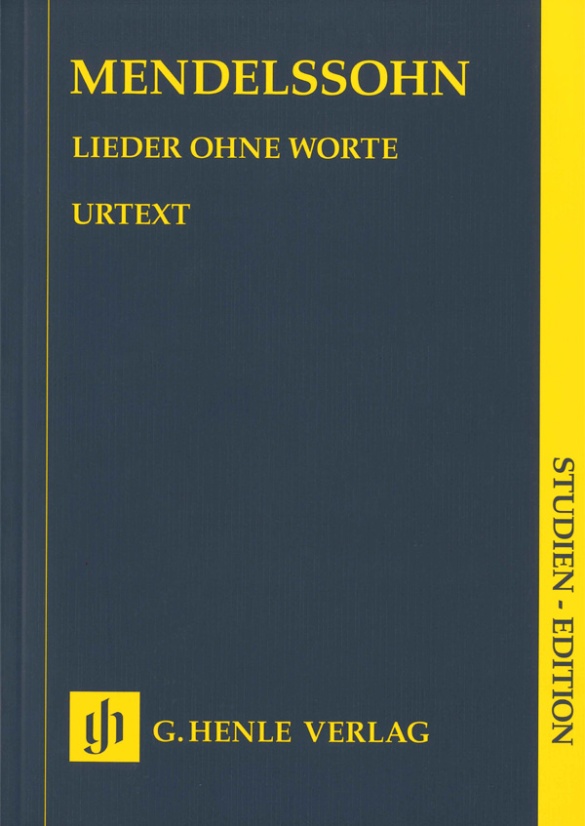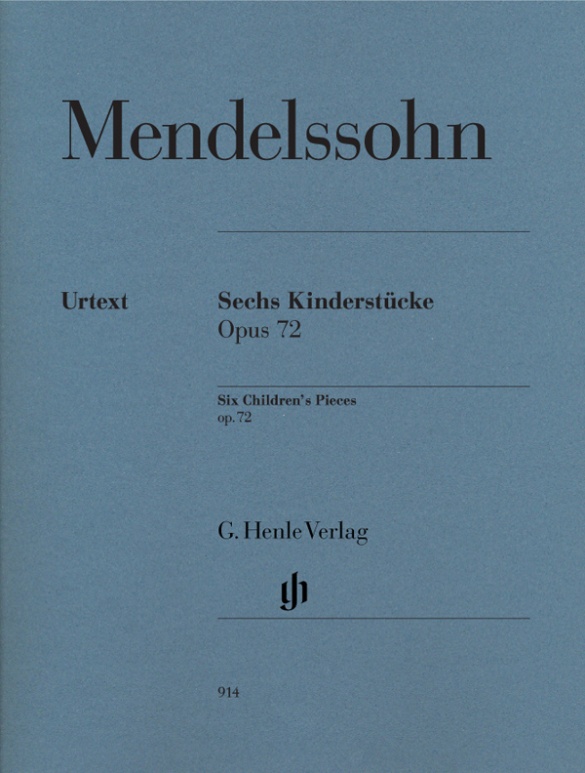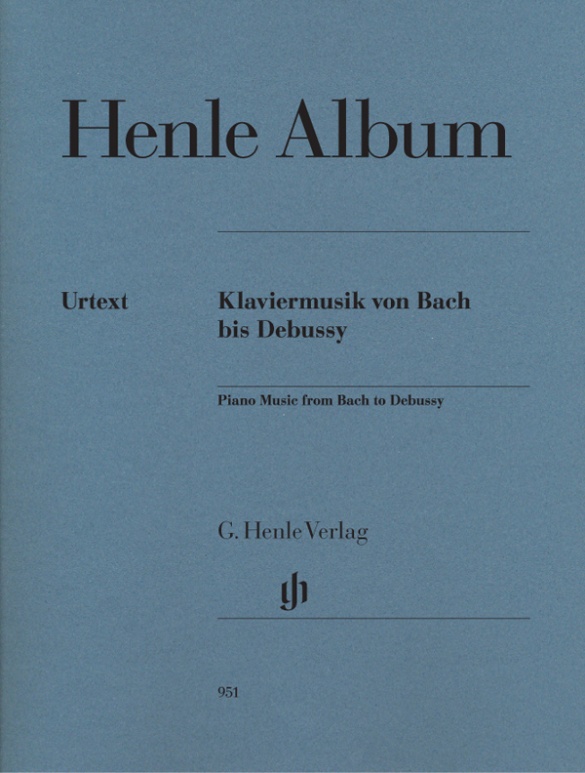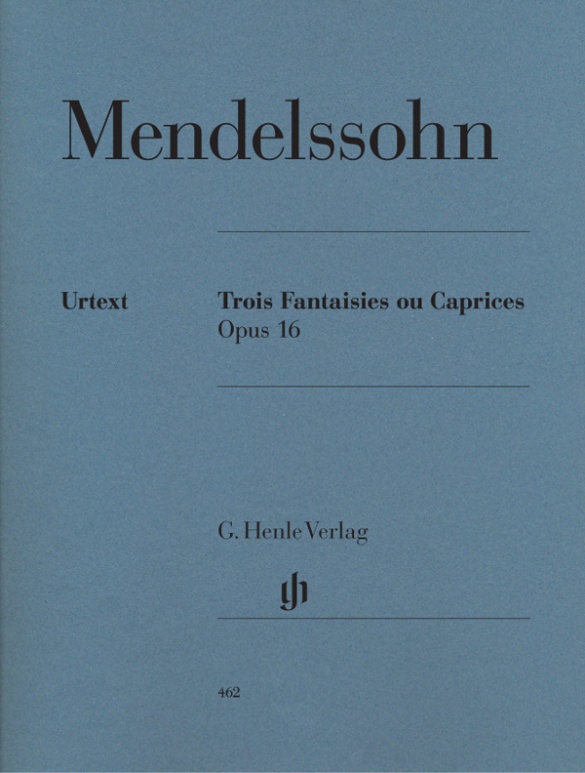Felix Mendelssohn Bartholdy
Piano works, Volume III - Songs without Words
When Mendelssohn learned from his publisher Nikolaus Simrock that he was to receive an additional honorarium for a part of his “Lieder ohne Worte”, he effusively thanked him for this gift. However, the gift that Mendelssohn, in his turn, made to posterity with these Songs Without Words could probably not have been foreseen even by him at the time. These “Original Melodies”, “Romanzen” or “Clavierstücke”, which only later gained the title “Lieder ohne Worte”, enjoyed great success during the composer’s lifetime, and should be included amongst the most rewarding pieces of 19th-century piano literature. Our volume contains the complete “Lieder ohne Worte” published during his lifetime and posthumously.
Content/Details
About the Composer
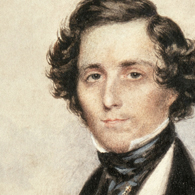
Felix Mendelssohn Bartholdy
A German composer, conductor, pianist, and organist who already numbered among the most important composers in Europe during his lifetime. While still young he found a unique tonal language. Reflected in his oeuvre, which spans all genres, are the contradictory tendencies of the age – Classicism and Romanticism. His endeavors over the course his life to perform the works of Johann Sebastian Bach led to a “rediscovery” of that composer which continues unabated. His intensive engagement with Bach and his counterpoint influenced his own compositional technique.
| 1809 | Born into a wealthy banker’s family in Hamburg on February 3. Escape to Berlin with his parents in 1811. First musical instruction from his mother. |
| 1819 | He becomes a pupil of Carl Friedrich Zelter. |
| 1820 | Joins the Sing-Akademie in Berlin. |
| 1821–23 | Twelve sinfonias for strings. |
| 1825 | String Octet in E-flat major, Op. 20. |
| 1826 | Overture to “A Midsummer Night’s Dream,” Op. 21 |
| 1827 | Begins studies at the University of Berlin. |
| 1829 | Revival of Bach’s St. Matthew Passion in Berlin on March 11 and 21. Travels to England and Scotland. |
| 1829–30 | “Reformation” Symphony in D minor, [Op. 107], with inclusion of the choral “Ein feste Burg“ (A Mighty Fortress Is Our God.) |
| 1830–32 | Extended travels, including to Italy and France. Piano Concerto in G minor, Op. 25; Overture in B minor, Op. 26, “The Hebrides, or Fingal’s Cave” (1829–30). |
| 1833 | Music director in Düsseldorf. “Italian” Symphony in A major, Op. 90 (1830–33). |
| 1835 | Director of the Gewandhaus concerts in Leipzig. |
| 1836 | Premiere in Düsseldorf of his oratorio “St. Paul: Oratorio on Words of the Holy Bible,” Op. 36. |
| 1838-44 | Violin Concerto in E minor, Op. 64. |
| 1840 | Composition of “Hymn of Praise, a Symphony-Cantata on Words of the Holy Bible,” Op. 52. |
| 1841 | Berlin, in the service of the Prussian king. “Variations sérieuses” in D minor, Op. 54, for piano. |
| 1842 | Completion of Symphony No. 3 (“Scottish”) in A minor, Op. 56, with a songlike opening. |
| 1843 | Incidental music to Shakespeare’s “A Midsummer Night’s Dream,” Op. 61. Director of the newly founded Leipzig Conservatory. |
| 1846 | Premiere of his oratorio “Elijah,” Op. 70, in Birmingham. |
| 1847 | String Quartet in F minor, [Op. 80]. Death in Leipzig on November 4. |
About the Authors

Ernst Herttrich (Editor)
Dr. Ernst Herttrich, born in 1942 in Würzburg, read musicology, history, German and theology at the universities in Würzburg and Cologne. In 1970 he earned his doctorate in Würzburg with a study of the expression of melancholy in the music of Mozart.
From 1970 to 1990 he was an editor at G. Henle Publishers in Munich, after which he was Head of the Beethoven Complete Edition for over 15 years. In 1999 he took over as Head of the Beethoven-Haus Publishers, and from 2001 was made Head of the Beethoven-Archiv, the research centre at the Beethoven-Haus.
He has been a visiting professor at Meiji Gakuin University in Tokyo and has undertaken several lecture tours both there and to Kyoto. His research interests include source studies, editorial techniques and music history. Herttrich’s publications include “Beethoven. Liederkreis an die ferne Geliebte” (Bonn 1999) and “Ludwig van Beethoven. Biographie in Bildern” (Bonn, 2000). Herttrich has edited over 100 Urtext editions for G. Henle Publishers.
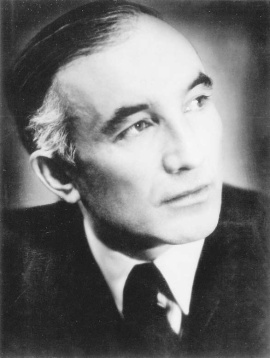
Hans-Martin Theopold (Fingering)
Prof. Hans-Martin Theopold, was born to a pastor’s family in Detmold on 22 April 1904, the youngest of five children. Even as a child he often played the organ in the “Marktkirche” and soon began to take piano lessons with Theodor Vehmeier. At the age of 17 he made his debut at the Landestheater in Detmold with Ludwig van Beethoven’s Piano Concerto in C major under Friedrich Quast (Herford). Following the successful completion of his schooling at the Gymnasium Leopoldinum in Detmold, he went on to study music and piano (main subject): from 1922–23 at the “Württembergische Hochschule für Musik” in Stuttgart (with Max Pauer, 1866–1945) and then from 1923–1928 at the “Staatliche Akademische Hochschule für Musik” in Berlin-Charlottenburg (with Richard Rössler, 1880–1962, and Waldemar Lütschg, 1877–1948). After completing his piano studies (graduating with “very good”) in 1928, he began an active solo career both at home and abroad (USA, Switzerland, Scandinavia, the Baltic states, the Balkans). As a member of the Chamber Music Association of the State Opera in Berlin (from 1933) he also gave countless chamber music concerts, including ones with his violin partner Gustav Havemann (1882–1960).
In the 1930s, audiences and the press alike raved about Theopold’s extraordinary gifts as a pianist: “This young player has it in him to soon become one of the best players in Germany. A superior technique, a wonderful singing piano tone, the strength of a Titan, but not at all hard due to the incomparably gentle elasticity of his touch” [Münchener Zeitung, 21 November 1933]. – “H.M. Theopold gave convincing proof of his splendid pianistic ability in an extremely gripping sonata with a modern idiom by Alban Berg, but predominantly in Schubert’s […] Wanderer Fantasy, which he played with a polished technique and creative power” [Weser-Zeitung, 21 December 1932]. Theopold was awarded several prizes, including the “Grotrian-Steinweg-Preis” in 1928.
In 1937 Theopold became a teacher for the piano (main subject) at the “Bayerisches Staatskonservatorium der Musik” in Würzburg. In 1939 he married Irene Tatjana Wülfing, who was from Moscow. From 1943 he became head of the piano master-class at the “Nordische Musikschule” in Bremen, although this was interrupted by the events of the war. Following his return from a prisoner of war camp, Theopold gave concerts and taught although he did not hold a permanent position. From 1955–1956 he was acting head of the piano master-class at the “Bergisches Landeskonservatorium” in Wuppertal, finally being appointed Professor for Piano on 1 April 1956 at the “Staatliches Institut für Schul- und Volksmusik” in Detmold, later at the “Nordwestdeutsche Musikakademie Detmold” (today “Hochschule für Musik Detmold”), where he taught for decades. On 30 September 1969 he retired. “His students extol his pedagogical gifts. […] Humour, charm, helpfulness and kind-heartedness moderate the strictness of his professional ethos as a musician and teacher” (Lippische Rundschau, 23 April 1969; see also: Lippische Landeszeitung 22 April 1969 on the occasion of Theopold’s 65. birthday: “Prof. Theopold, a modest but at the same time energetic man, is an enthusiastic teacher”). Theopold died in Detmold in 2000.
Contact with Günter Henle was established directly after the publishing house was founded, when Theopold thanked the publishers with great enthusiasm for its first Urtext editions. His extensive correspondence with the publishing house was bequeathed to the Lippische Landesbibliothek in 2014 to ensure its long-term accessibility to the public. The letters testify not only to Theopold’s great interest in musical sources and text questions but also to his initial strict refusal (!) of fingerings in text-critical editions such as these: “For fingerings are and remain something individual no matter what their quality” (letter to Günter Henle from 26 May 1949 {publishing house archives}). Günter Henle was not, however, to be swayed and stressed the necessity of fingerings in his Urtext editions: “It is better to publish the Urtext […] with fingerings that are not necessary for a few individuals, or that might even, I admit, be considered irritating here and there” (letter to Hans-Martin Theopold of 17 September 1953).
It was only in 1955 that Theopold accepted Günter Henle’s offer of contributing fingerings for an Urtext edition that was in the process of being prepared by way of trial. (HN 74, Schubert, Complete Dances for Piano, Volume 1). Following this, Theopold was commissioned to write the fingerings for nearly all of the publishing house’s new editions in quick succession. Günter Henle, himself a good pianist, greatly valued Theopold’s fingerings, and also the many suggestions regarding the musical text in question. In addition, Theopold was always very reliable, thorough and conscientious – something that is not unimportant with editorial work!
Thus to date Hans-Martin Theopold has provided the fingerings for the greatest number of Henle Urtext editions by far – 226 editions (!) in total.
We would like to thank Mrs Margot Theopold and the Hochschule für Musik in Detmold for their great support in providing biographical material.
G. Henle Verlag
Product Safety Informations (GPSR)

G. Henle Verlag
Here you can find the information about the manufacturer of the product.G. Henle Verlag e.K.
Forstenrieder Allee 122
81476 München
Germany
info@henle.de
www.henle.com
Trotz des kleinen Formats bleibt die bei Henle gewohnte Qualität erhalten: der Notendruck ist durchgängig sehr gut lesbar und übersichtlich, ein Vorwort (auf Deutsch, Englisch und Französisch) informiert über Werkentstehung und Veröffentlichungen und ein Kritischer Bericht gibt im Anhang Auskunft über die verschiedenen Quellen und Lesarten.
Das MusikinstrumentLa succession de ces 48 pièces lyriques libres (plus le Reiterlied) offre au lecteur un champ d'exploration très vaste dans l'imaginaire harmonique et formel inépuisable de Mendelssohn. Tout étudiant en musique ou en musicologie se doit de les avoir étudiées et les Editions Henle leur offrent la possibilité de le faire en toutes circonstances dans un format facilement transportable.
Revue internationale d'études musicalesrecommendations
autogenerated_cross_selling
Further editions of this title
Further editions of this title


